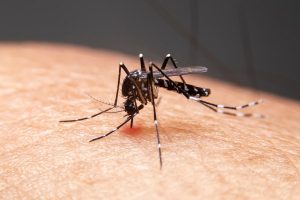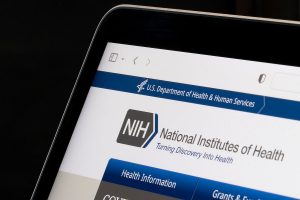(HealthDay News) — The drug Tagrisso could offer hope to patients battling a form of lung cancer that typically hits people with little or no history of smoking, a new trial finds.
Taken after surgery to remove the lung tumor, Tagrisso (osimertinib) greatly extended the average survival of people battling a non-metastatic form of non-small cell lung cancer (NSCLC), which makes up the vast majority of lung cancers.
The NSCLC tumors that were the focus of the new trial were characterized by the presence of an epidermal growth factor receptor (EGFR) mutation on cells.
This subset of tumors “are present in roughly 10% of Caucasian patients, with much higher estimates of other patient populations, such as Asian patients,” said Dr. Kevin Sullivan, a lung cancer specialist who wasn’t involved in the new trial.
“Most patients with these mutations are non-smokers or former very light smokers,” noted Sullivan, who works in the division of medical oncology at Northwell Health Cancer Institute in Lake Success, N.Y.
Typically, he said, patients diagnosed with these tumors get surgery followed by standard chemotherapy — if the cancer hasn’t already spread beyond the lung.
That standard follow-up chemotherapy “provides a small but significant survival benefit — meaning, it improves the cure rate,” Sullivan explained. And if the cancer comes back, which it often does, it can prove incurable.
The new study, funded by drug maker AstraZeneca, was looking to see if Tagrisso might improve outcomes. It was led by Dr. Roy Herbst, chief of medical oncology at Yale Cancer Center and Smilow Cancer Hospital, and presented Friday at this year’s virtual annual meeting of the American Society of Clinical Oncology (ASCO).
The trial included almost 700 patients with localized stage II-IIIA NSCLC tumors with an EGFR mutation. The patients had already undergone complete surgical removal of the primary tumor and had fully recovered from that operation.
The patients were randomly selected to take either 80 milligram tablets of Tagrisso once daily, for up to three years, or a placebo. The patients in the multinational phase III study could also have postoperative standard chemotherapy.
Among patients who received Tagrisso, 90% were alive after two years without their cancer recurring, compared with 44% who received a “dummy” placebo pill, the research team found. Said another way, the risk of disease recurrence or death was reduced by 83% for patients who took Tagrisso after surgery, compared to those who took a placebo.
The promising results led the independent data monitoring committee of the study to recommend early “unblinding,” meaning that patients could be told whether they were receiving the drug or a placebo.
“This trial is a home run. It exceeded our expectations,” Herbst said in an ASCO news release. “It’s an important advance to see a targeted therapy significantly delay disease recurrence following surgery in patients with non-small cell lung cancer. We can now treat patients earlier.”
Dr. Richard Schilsky, ASCO chief medical officer and executive vice president, noted in a society news release that Tagrisso “is already the front-line standard of care for patients with EGFR-mutated advanced non-small cell lung cancer.” He agreed the new findings should support its use for early-stage disease, as well.
Still, the study has not been published in a peer-reviewed journal, so the findings should be considered preliminary.
For his part, Sullivan said the study showed a “dramatic” benefit in terms of added survival time without any progression of disease.
But “it is still not clear from the data provided whether this therapy is actually improving the ‘cure rate’ for patients. It may be that the medication is just delaying the time until the disease returns, especially given the length of time that patients in the study were on treatment,” he said.
“Ultimately, we will need to see more than the disease-free survival data,” Sullivan said.
More information
The U.S. National Cancer Institute has more on non-small cell lung cancer.
Source: HealthDay
Copyright © 2025 HealthDay. All rights reserved.

















